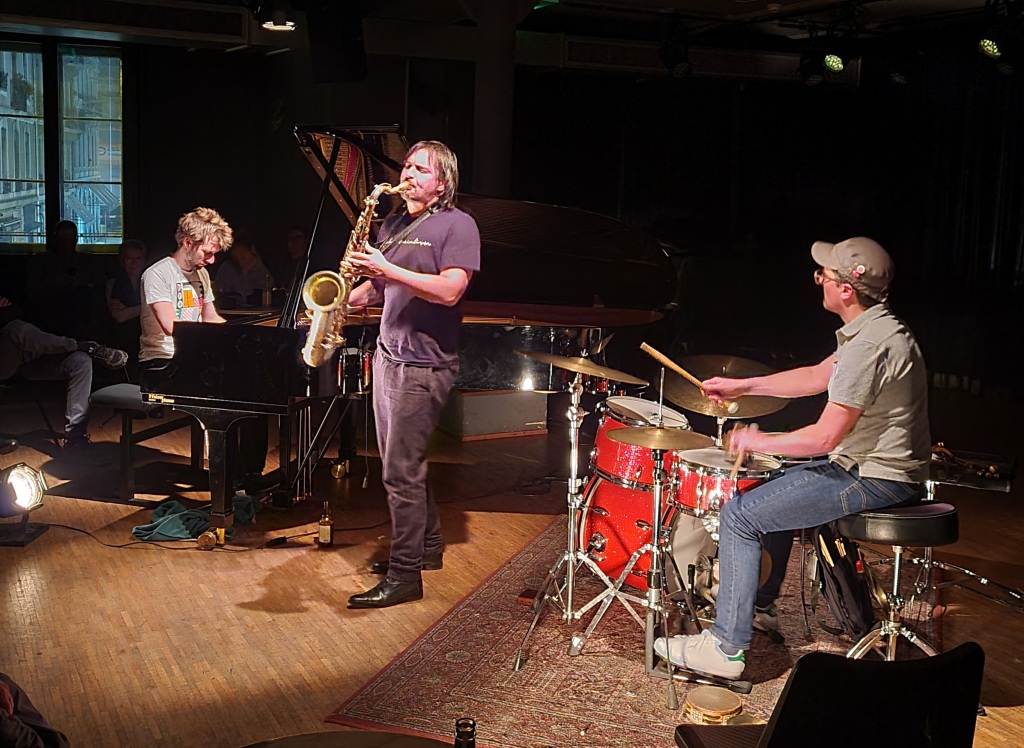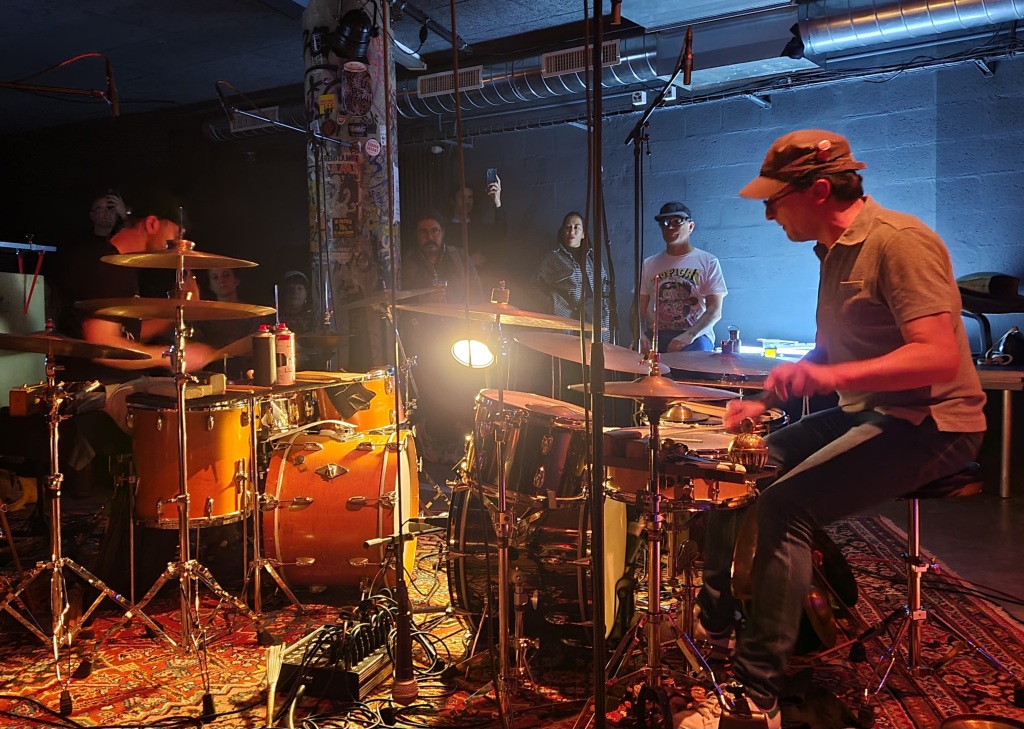“Everyone has a plan until they get punched in the mouth,” ran the blurb for this concert by a new trio making its Geneva début at AMR last week, pitting the British drummer Nicolas Field against Swiss pianist Thomas Florin and American tenor saxophonist, now based in Amsterdam, John Dikeman. If the tagline hinted at the possibility of overdriven free jazz in the mould of Peter Brötzmann or the late Scandinavian power trio The Thing, it was a prospect that quickly evaporated in the hands of these thoughtful, highly inventive musicians. AMR was nicely full for the occasion, although this may have had something to do with a “two tickets for the price of one” deal that was on offer that night.
Field has been a quietly forceful presence behind the kit each time I’ve seen him play, an impression that was amply reinforced tonight. Whether leading his own six-piece N-Ensemble or battling it out against four relentless interlocutors as part of the drum duo Buttercup Metal Polish, the drummer has shown himself to be a master at blending souped-up rhythms with quiet sonorities and storming free passages. On this occasion Field’s probing and intricate stickwork kept up a sustained dialogue with the sax and piano, opening up space for Dikeman and Florin to illuminate the room with their melodic and harmonic invention.
It was a short concert, with four pieces each lasting fifteen minutes or so; perhaps the brevity of the evening was due in part to the relative newness of the trio. However, the gig certainly wasn’t short of eventfulness or arresting moments. Florin, whom I’d seen play before as part of the aforementioned N-Ensemble, opened the first piece in wintry minimalist style before being joined by Dikeman in swirling, exploratory duo forays. The saxophonist’s hard, earthy tone gradually expanded into flights of exuberant soloing, culminating in a lively exchange where he and Field alighted on an irresistible groove, scooped it up and took it in all kinds of unexpected directions. Dikeman’s tenor playing reminded me at times of Ken Vandermark, with something of the same formidable power and restless intelligence; but Dikeman’s style is very much his own, marked by agitated multiphonics and piercing Ayleresque cries.
I’m not the world’s biggest fan of extended techniques, so I must admit that I found it a little dispiriting when Dikeman employed slap tonguing and other attacks on the reed that traded his usual fluency for a certain spikiness. For his part, Florin reached for the inside of his piano more often than was strictly necessary; there’s really no need to extend the palette of available piano sounds in this way. But these are minor gripes, which did little to detract from the sheer enjoyment of the concert. I left wanting to hear more; let’s hope this trio sticks around. In the meantime, Field and Florin will present an extended version of their Re-Ghoster project at the Archipel festival in Geneva in April.


